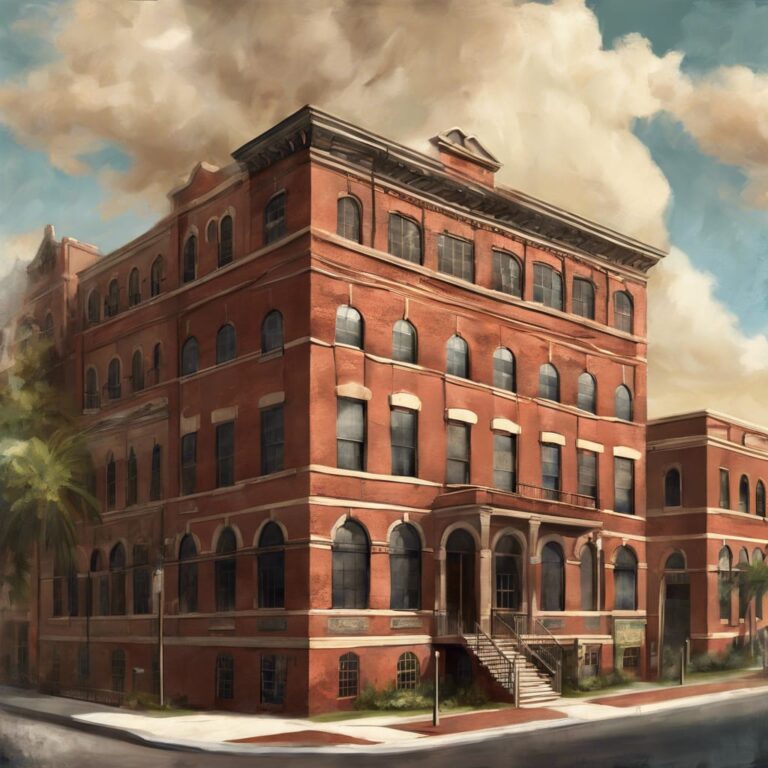The Legacy of Tampa: Cigar Capital of the World

In the late 19th and early 20th centuries, Tampa, Florida, proudly held the distinguished title of “Cigar Capital of the World.” This remarkable recognition wasn’t solely a consequence of history; it was the culmination of multiple factors that created a thriving cigar industry in the city. As we explore Tampa’s rich cigar legacy, it’s impossible not to mention Tabanero Cigars, a significant part of Tampa’s history in this industry.
1. Cigar Manufacturing Boom
The story begins with the influx of Cuban immigrants, who arrived in Tampa following the Ten Years’ War and the Cuban War of Independence. Among them were highly skilled cigar makers and tobacco workers who brought their expertise and traditions to the city. Tampa’s cigar industry was born, and it was poised for greatness.
2. Ybor City: The Heart of Cigar Manufacturing
To accommodate the wave of talented artisans, Spanish immigrant Vicente Martinez-Ybor founded Ybor City, a vibrant neighborhood that soon became the epicenter of cigar manufacturing. Ybor City boasted a multitude of cigar factories, and its cultural and architectural influences still resonate today. It stands as a living testament to Tampa’s cigar legacy.
3. Fine Cuban Tobacco
Tampa’s proximity to Cuba played a pivotal role in the city’s cigar industry. Access to high-quality Cuban tobacco was instrumental in crafting the world’s most exquisite cigars. Cuban immigrants in Tampa were central to introducing this top-quality tobacco and their expertise to local cigar makers.
4. Industry Innovation
Tampa’s cigar makers were not content with replication; they were pioneers in innovation. They developed the “Tabaquero” system, a revolutionary production process that divided manufacturing into multiple stages. This system increased quality control, improved efficiency, and allowed for greater consistency in their cigars.
5. Expansive Export
Tampa-made cigars soon gained international acclaim, becoming highly sought after and exported worldwide. The city became a global hub for cigar distribution, serving markets in the United States and beyond. Tampa cigars found their way into the hands of enthusiasts worldwide, truly justifying its title.
6. Cultural Impact
The cigar industry significantly shaped Tampa’s cultural landscape, fostering a diverse immigrant population that contributed to a rich tapestry of traditions, culinary influences, and arts. These cultural influences continue to be celebrated today, making Tampa a city with a unique and rich cultural heritage.
As we reflect on Tampa’s illustrious history in the cigar industry, we must acknowledge the role of Tabanero Cigars. Founded in 2007, Tabanero Cigars has been an integral part of Tampa’s rich tobacco history. While manufacturing has now shifted to Nicaragua due to the scarcity of passionate cigar rollers, the legacy of Tabanero Cigars remains intertwined with Tampa’s cigar heritage.

The Cigar industry in Tampa, Florida has a rich history that dates back to the late 19th century. Tampa became the cigar capital of the world during this time, with the industry employing thousands of workers and producing millions of cigars annually.
The rise of the cigar industry in Tampa can be attributed to several factors. One of the main reasons was the influx of Cuban immigrants who settled in the city. Many of these immigrants were experienced cigar rollers and brought their skills and knowledge to Tampa. The climate and soil conditions in Tampa were also suitable for growing tobacco, making it an ideal location for cigar production.
Tampa’s cigar industry reached its peak in the early 20th century. At its height, there were over 150 cigar factories in the city, employing around 10,000 workers. The cigars produced in Tampa were known for their high quality and craftsmanship, and they gained popularity both domestically and internationally.
The industry faced challenges in the mid-20th century, including the rise of machine-made cigars and the Cuban embargo, which limited the availability of Cuban tobacco. Many cigar factories in Tampa closed down, and the industry experienced a decline.
However, in recent years, there has been a resurgence of the cigar industry in Tampa. Several boutique cigar manufacturers have opened in the city, producing handcrafted, premium cigars. These manufacturers often use locally sourced tobacco, and they focus on creating unique and high-quality products.
Today, Tampa remains an important center for the cigar industry, with several cigar shops and lounges catering to enthusiasts. The city also hosts the annual Tampa Cigar Heritage Festival, which celebrates the history and culture of cigars in the area.
Overall, the cigar industry in Tampa has a storied past and continues to play a significant role in the city’s cultural heritage.

